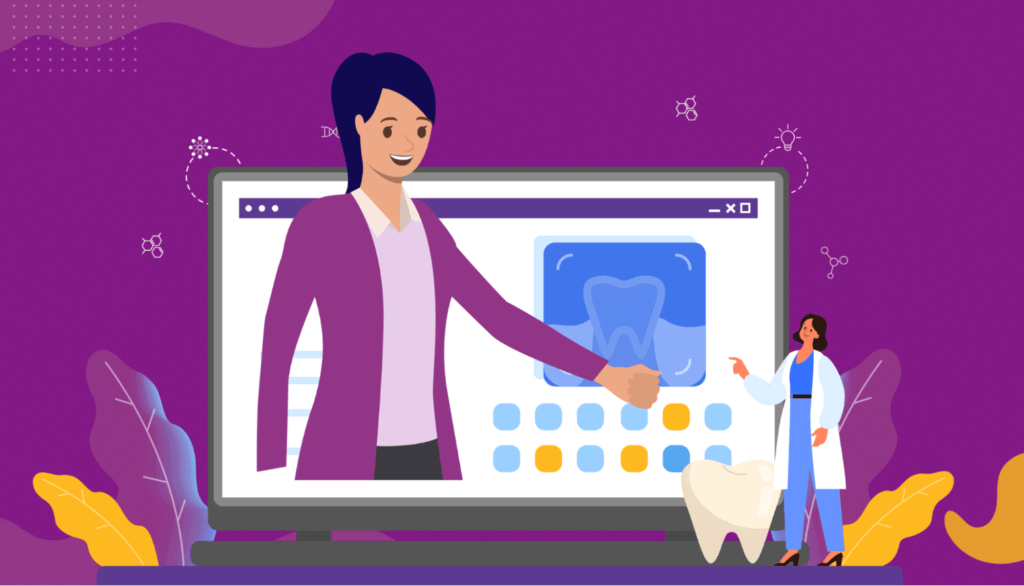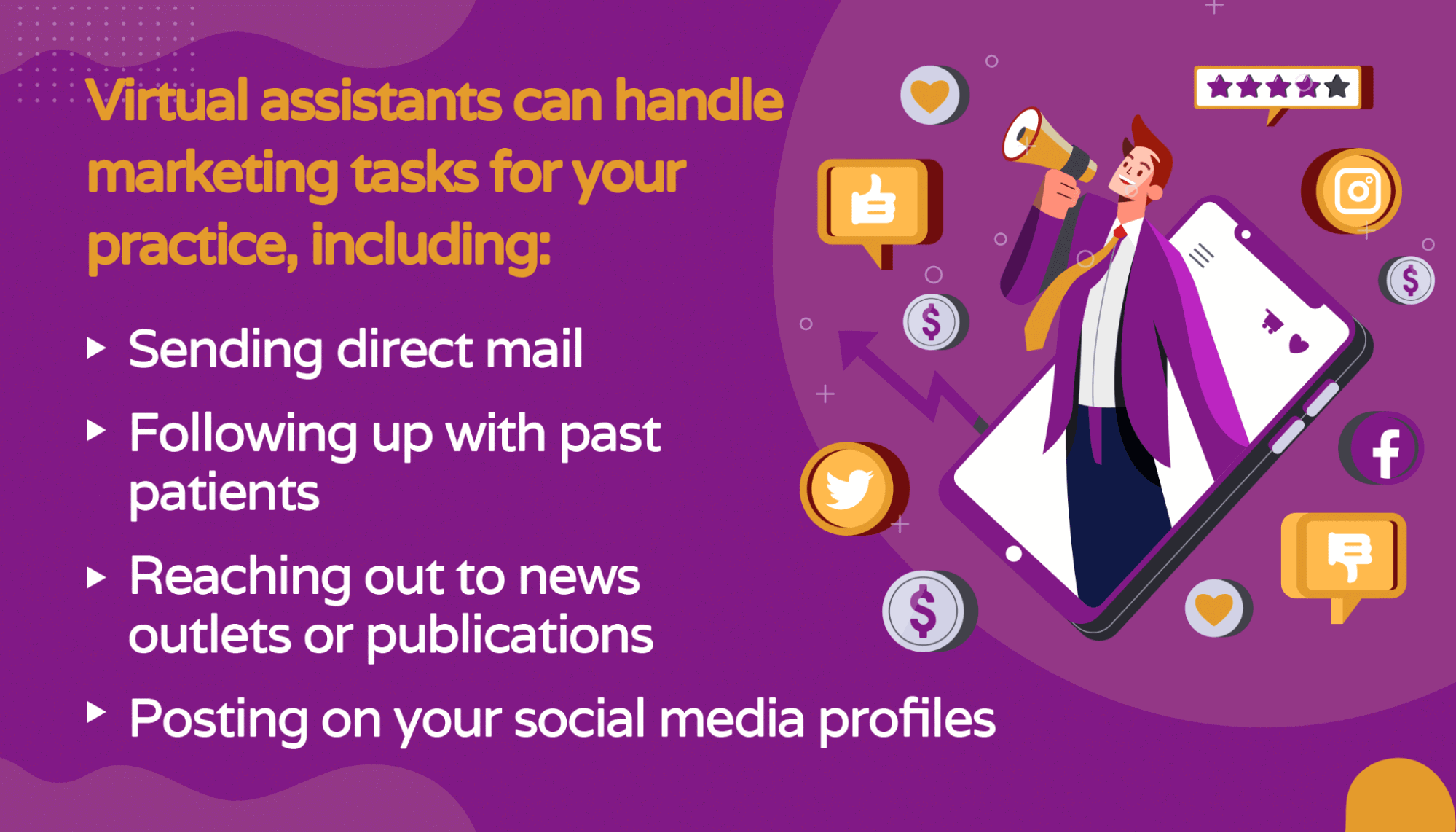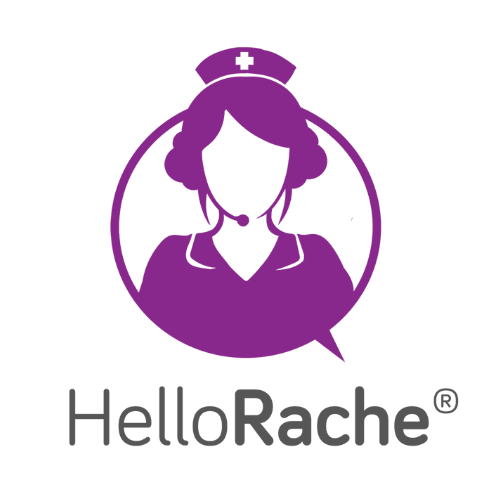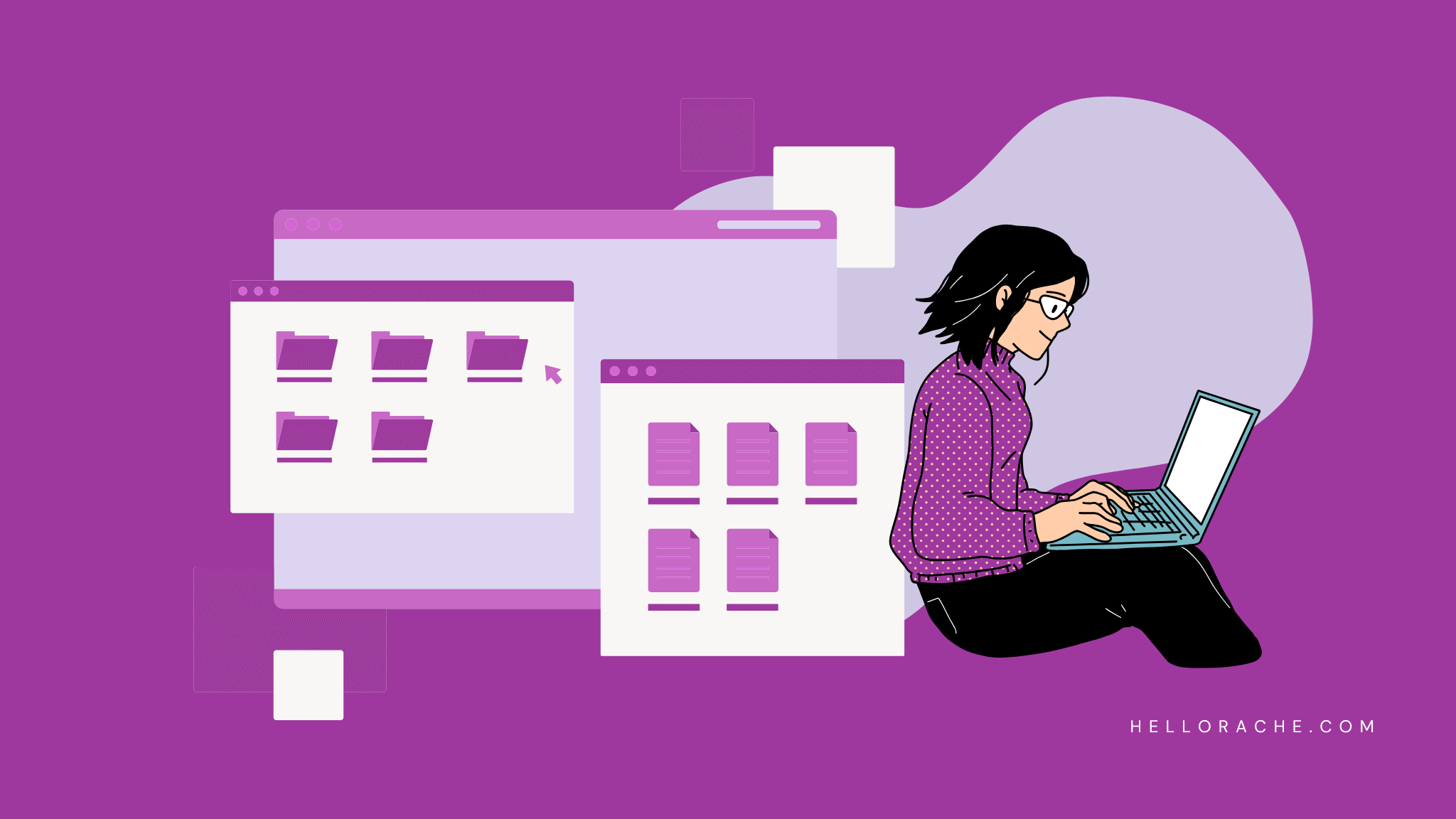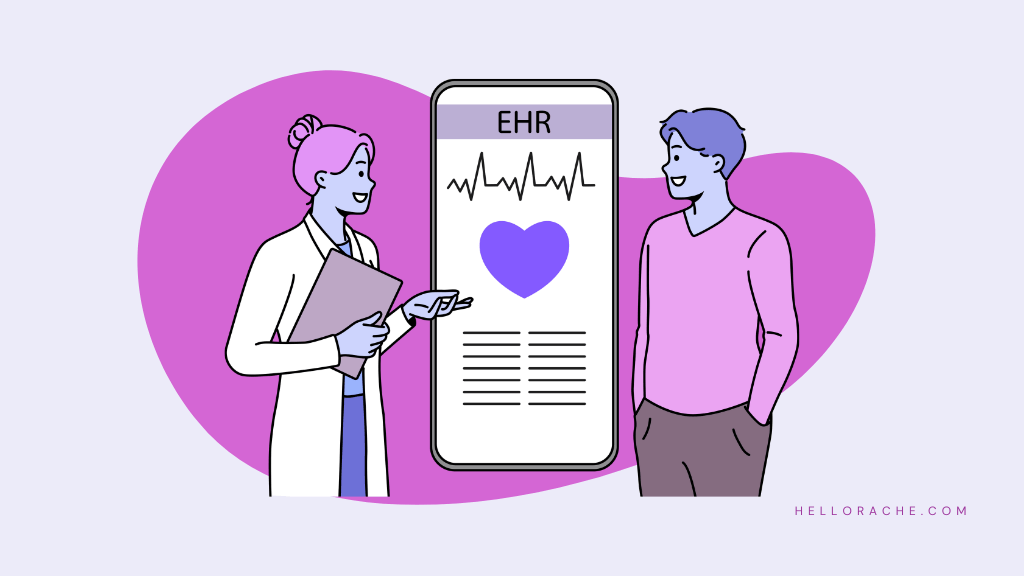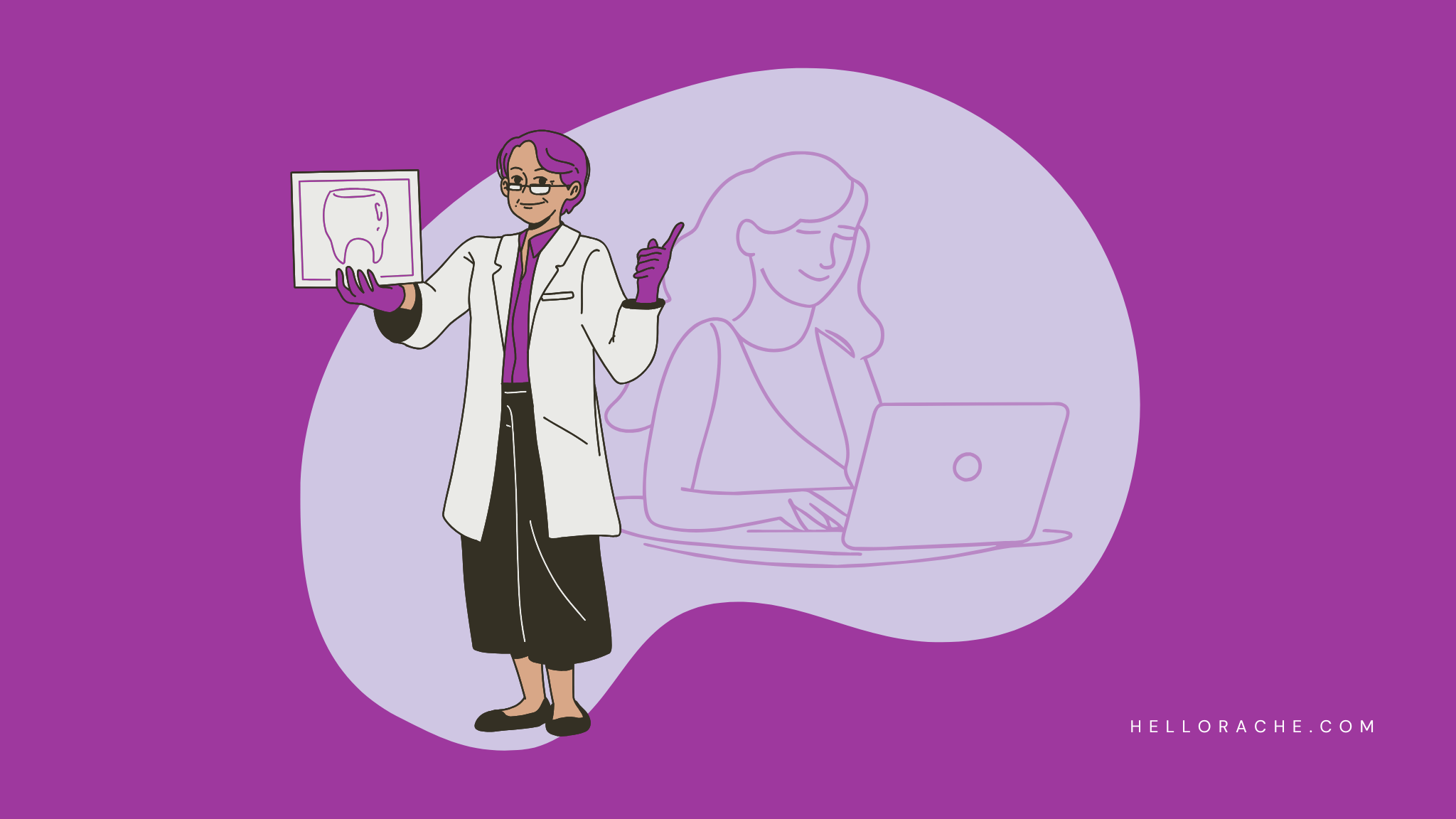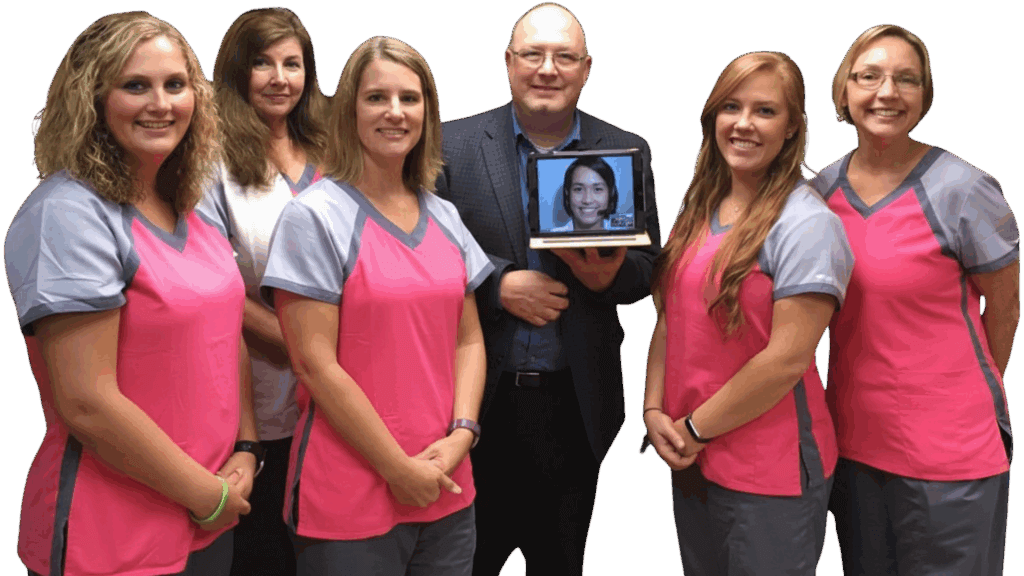As a healthcare professional, you may have heard about hiring virtual assistants to handle the overflow of administrative tasks.
But what do virtual assistants do in a healthcare setting? Are they qualified to help doctors, dentists, vets, and other healthcare professionals?
Healthcare Virtual Assistants are more than your run-of-the-mill remote worker. They’re specifically trained in the healthcare industry and have the skills to improve your practice.
Not sure what a Healthcare Virtual Assistant can do for you? Keep reading to discover the top 10 tasks for virtual assistants you can outsource as a healthcare professional.
What are virtual assistants?
Virtual assistants are administrative workers who can help you around the office. Their role is similar to that of an administrative assistant. However, virtual assistants can perform a range of tasks from anywhere in the world.
When you hire a virtual assistant, you’re not limited to local talent. You can hire anyone who has a stable Internet connection and a reliable computer. Thanks to modern communication technology, it’s easy to speak and collaborate with a virtual assistant for a wide range of purposes.
While companies in nearly all industries hire virtual assistants, these remote workers are particularly useful in healthcare clinics. Whether you’re a doctor, vet, dentist, or other type of healthcare professional, hiring a remote assistant can help you remove the burden of office tasks and serve your patients at a higher level.
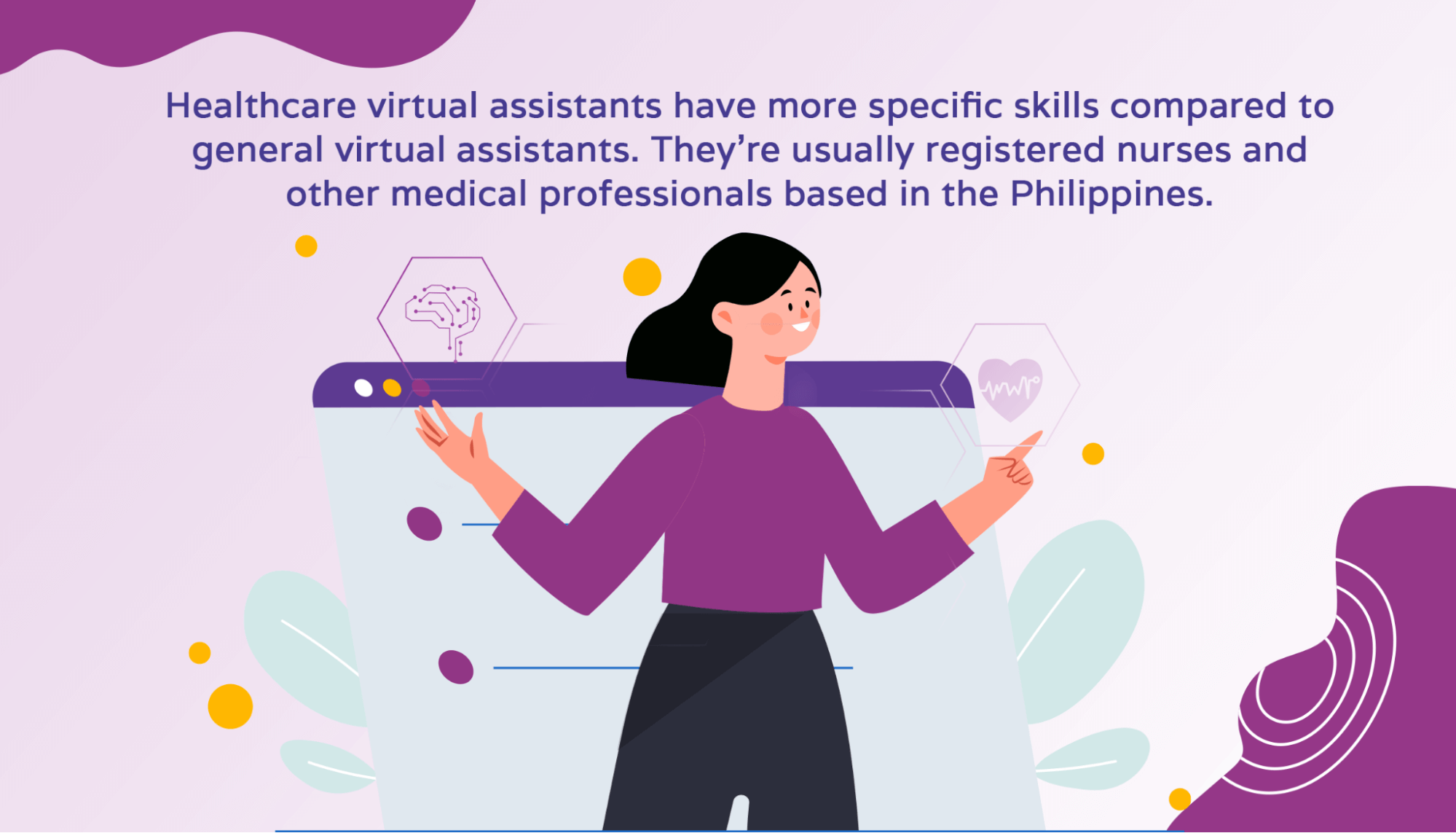
Virtual assistant services can be life-changing for healthcare professionals. But they can also be difficult to find – especially if you’re looking for someone with experience in the healthcare industry.
Get in touch with our team to find out how we can help you get your own Healthcare Virtual Assistant in just a few days.
10 tasks virtual assistants can do for your healthcare practice
Healthcare Virtual Assistants can handle a variety of routine and essential tasks for your practice. Here are just 10 examples of time-consuming business tasks you can outsource to a remote assistant.
1. Medical data entry
Medical data entry is a time-consuming process for healthcare professionals. However, it plays an important role in patient care. You can’t skip this task without severe repercussions.
But focusing too much of your time on medical data entry can hold you back from revenue-generating activities, such as networking or seeing more patients.
And when you let medical data entry tasks pile up, that can put a strain on the services you provide – especially when you need to take time away to catch up.
Luckily, medical data entry is one of the easiest tasks to outsource. As long as your virtual assistant understands how your electronic systems work, they can easily input any data you give them so you won’t have to handle it.
Letting a virtual assistant manage your data entry tasks won’t just save you time – it can also help you improve your services for your patients since you’ll have one less responsibility on your plate. Instead of splitting your attention between patients and data entry, you can focus it all on your patients. As a result, your patients will typically be happier and come back to your practice time after time.
2. Healthcare marketing tasks
Get more patients for your practice by outsourcing your healthcare marketing tasks to a virtual assistant. While marketing tasks like content writing are a priority for any private practice, they take up a ton of time to execute.
But when you train a virtual assistant correctly, they can execute marketing strategies just as well as you can. This can help you get a constant flow of new patients without taking too much time away from your existing ones.
For example, you can teach your virtual assistant to send direct mail campaigns to potential patients. Additionally, personal assistants can phone past patients to follow up and inquire about their needs.
If you have social media accounts for your practice, your virtual assistant can write, design, and post content or blog posts regularly to attract a larger audience. And if you don’t yet have social media accounts, you can task your remote assistant with setting some up for you.
Finally, a virtual assistant can reach out to news outlets for publications so that you can get featured and generate more awareness of your practice.
3. EMR implementation
If your healthcare office doesn’t currently use an electronic medical records (EMR) system, you can get a virtual assistant to help you with EMR implementation.
Transferring physical documents into an EMR system for the first time is time-consuming and tedious. But you can create your EMR implementation plan and let your virtual assistant execute that list of tasks for you.
Making the switch to digital doesn’t have to be intimidating. While your virtual assistant transcribes existing documentation, you can continue your business as usual.
4. Billing
When you’re busy taking care of billing tasks, you’re not available for your patients. And when you leave those tasks for the end of the day, you can’t go home until you’ve handled them all.
Virtual assistants can bill patients using a virtual medical biller. And they can also manage billing transactions and bookkeeping tasks.

Imagine reaching the end of the month without having a pile of accounting and billing tasks to catch up on. That can be your reality if you have a virtual assistant to take on those responsibilities.
Having a dedicated virtual assistant to handle virtual medical billing can even help reduce clerical mistakes, which can improve quality of service and lead to better patient satisfaction.
5. Preauthorizations and insurance verification
Billing your patients isn’t the only thing you need to worry about. One of the most painstaking realities of the healthcare industry is dealing with insurance verifications and the preauthorization process.
Patients can rest easier when they know they can receive the treatment they need while also getting covered for it. But for this to happen, you need to complete a prior authorization – a rather complicated process that drains resources from you and your healthcare team.
Thanks to virtual assistants, you can simplify the prior authorization process in your practice and reduce the burden of administration on your in-house team.
Having a virtual assistant handle the preauthorization process isn’t just beneficial for your team – it can also help reduce delays for your patients, who’ll more than likely appreciate getting access to care more quickly.
6. Transcription
A Healthcare Virtual Assistant who’s trained in HIPAA compliance can transcribe handwritten notes into your EMR system. Instead of handling this common task yourself or delegating it to your in-house staff, you can outsource it to a remote assistant.
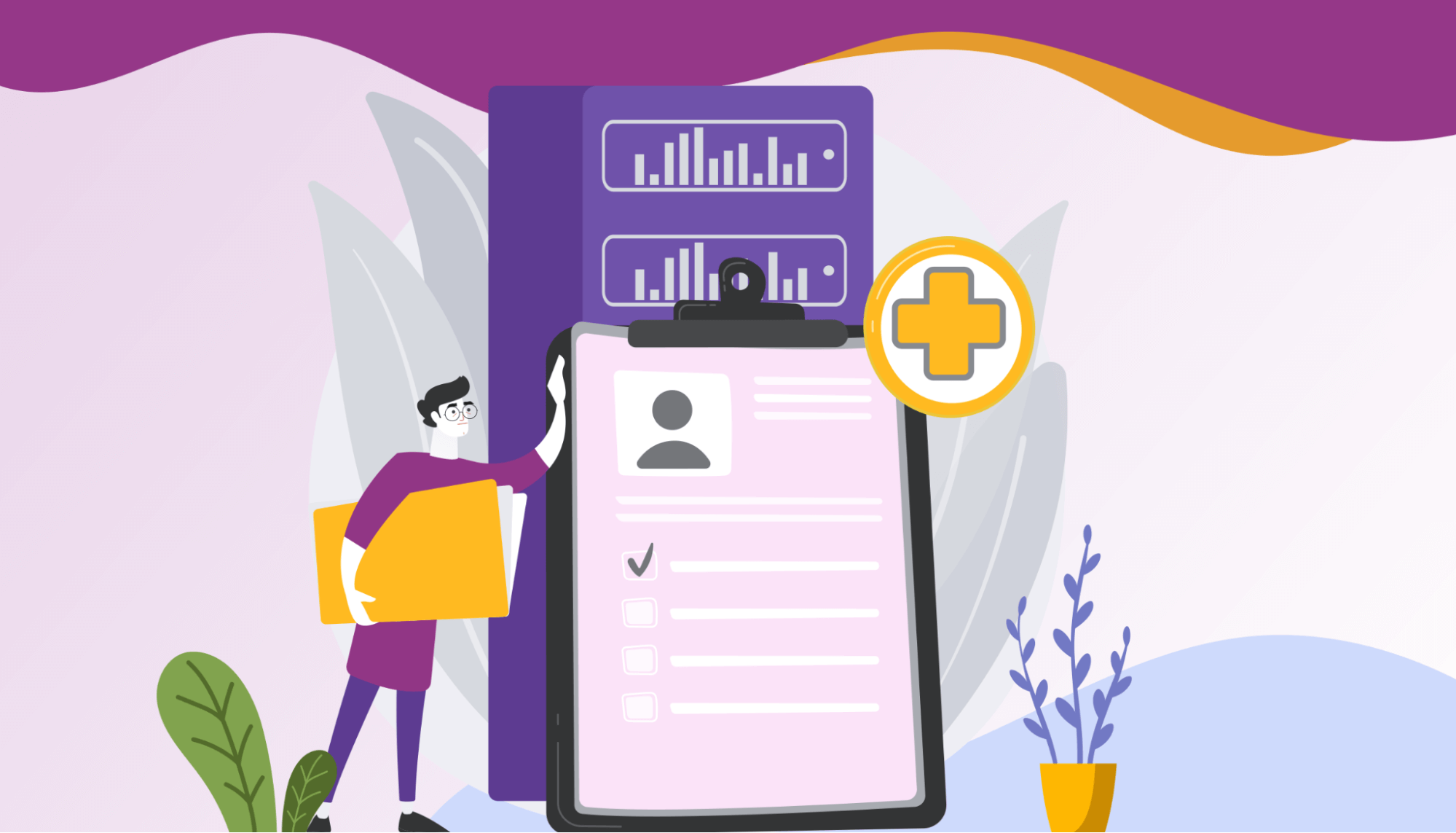
If you have more than one practitioner working in your clinic, having a virtual assistant to transcribe documentation can also help to standardize all notes. Every professional has a different note-taking style, but a virtual assistant can transcribe everyone’s notes in the same format.
Thanks to standardization, you can help reduce medical errors and ensure better patient outcomes.
Keep in mind that not all virtual assistants are qualified to perform medical transcription duties. The person responsible for transcribing should be extremely comfortable with medical terminology so that the transcriptions remain accurate.
7. Medical documentation
Keeping track of all your patients and their progress using proper medical documentation is easier said than done. When you’re overworked or close to burning out, you can accidentally skip a step in the process. This can lead to incomplete or outdated patient medical records.
Instead, you can delegate medical documentation to a virtual assistant – giving them the responsibility of making sure all patient files are accurate, up-to-date, and complete.
Virtual assistants can even communicate with patients to obtain missing information.
8. Answering phones
Never let the phone go to voicemail again. While automated answering services can be useful when your front office staff is overwhelmed, they can also be difficult for patients to navigate.
Automated and pre-recorded systems are also impersonal and unable to be adapted to every patient’s needs.
On the other hand, a virtual assistant can answer the phone for your practice, even outside of your operating hours. You can hire one or several assistants around the clock to get a 24/7 answering service.
Providing a live operator service will ensure that your patients can always get in touch with your practice – even during emergencies. A live operator can provide personal support for each patient inquiry, which an automated system can’t do.
In addition to taking phone calls, virtual assistants can handle email management and calendar management outside of office hours.
9. Setting appointments and handling reminders and cancellations
Stop squeezing your appointment-setting process between two patients or into your evenings. Those are moments you should use to rest and reset.
Instead, consider outsourcing your appointment scheduling tasks to a virtual assistant. Your remote assistant can act as a virtual receptionist by receiving phone calls for appointments. And they can also contact patients to reschedule or cancel appointments when needed.
Not only will using a virtual assistant win you back your time, but it’ll also ensure that patients are reminded of their appointments every single time.
10. Live charting
Live charting is one of the tasks that a Healthcare Virtual Assistant actually performs more efficiently than an in-person assistant.
When you conduct patient appointments on your own, you need to listen to your patients, take notes, and ask follow-up questions.. That’s why it can be useful to have a scribe in the room performing live charting.
But having another person in the room can feel intimidating to some patients. A virtual assistant, however, can listen to the exchange from a tablet or another electronic device.
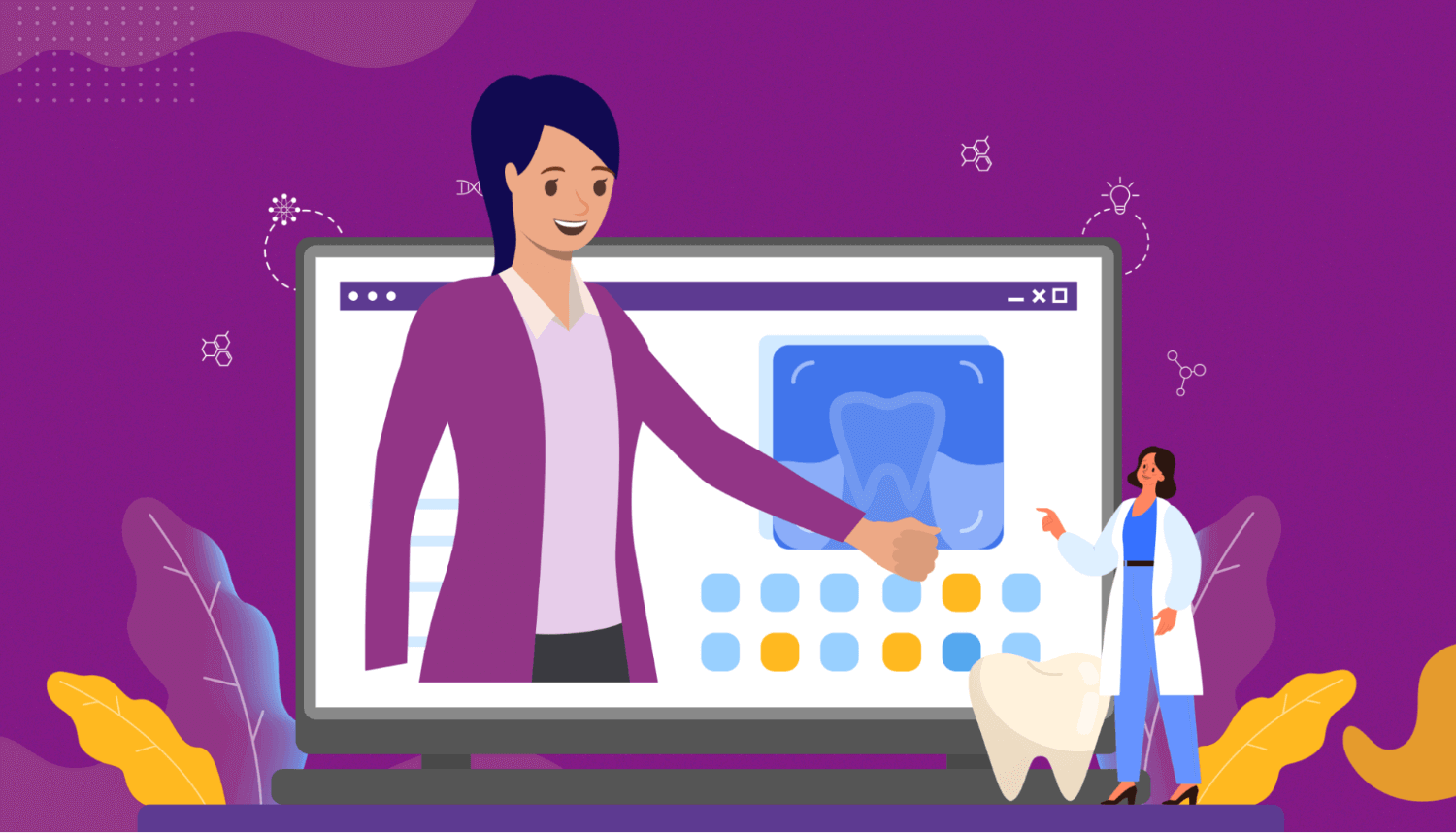
After the patient’s visit, you can go over the charting details and review any details your virtual assistant needs to add. Once that’s done, you won’t need to worry about the data entry for those notes – instead, you can simply move on to your next appointment.
What do virtual assistants charge?
A virtual assistant’s rate of pay will depend on several factors.
First, you’ll need to account for their location. Some countries have a higher cost of living than others, and virtual assistants who live in those countries will typically charge more per hour.
For example, let’s look at US-based virtual assistants. On average, a virtual assistant who works in the US will charge $21 per hour. This rate can go up or down depending on:
- Their level of experience
- Their specialties
- The industries they’ve worked in
A virtual assistant can also charge more if they take on more responsibilities. For example, some remote assistants will take on the role of an office manager instead of only handling remote tasks. These assistants usually charge a premium for this service.
Hourly rates will also depend on the type of contract you have with your virtual assistant. If you hire an employee, you’ll typically pay them a lower hourly rate in exchange for stability. However, this will require extra overhead on your part compared to an independent contractor.
You can look for freelancers and independent contractors, although these virtual assistants need to charge more to account for their own business expenses. Another option is to hire a virtual assistant company on a contractual basis.
Even though the company acts as a contractor, its virtual assistants are typically its employees. As a result, their hourly rates are lower than what you’d pay a freelancer.
Outsource your most bothersome tasks to trustworthy Healthcare Virtual Assistants
Hiring a virtual assistant can make it difficult to keep your profit margins healthy for your practice. But did you know that you can hire a Healthcare Virtual Assistant for a flat fee of $9.50 per hour – and have someone else monitor them for you?
That’s what you’ll get when you work with Hello Rache to staff your healthcare practice. Whether you’re a medical doctor, vet, psychiatrist, dentist, or any other healthcare professional, virtual assistants from Hello Rache are trained to understand your industry.
Book a call with our team today, and you’ll see why leading healthcare professionals choose us to help with their office tasks.

